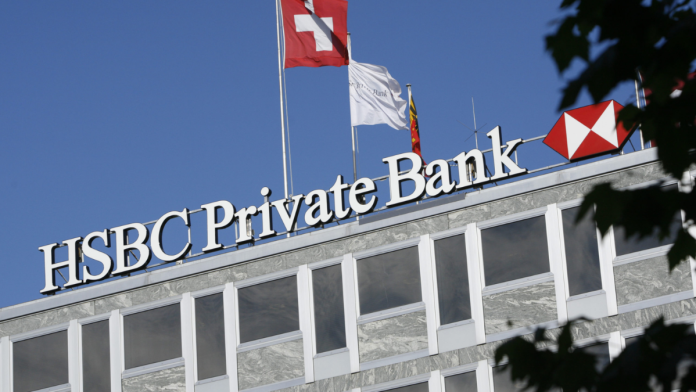HSBC’s Swiss private banking division is under serious scrutiny as local and French authorities launch investigations into possible money laundering. The bank has acknowledged that these investigations are still in early stages but could have a significant impact on its operations.
Investigations Begin into HSBC’s Swiss Unit
HSBC’s Swiss private bank is currently facing investigations by law enforcement agencies in Switzerland and France. These probes are focused on possible wrongdoing linked to “two historical banking relationships,” according to a statement released by the bank.
The exact details of the cases have not been made public. However, HSBC warned that the consequences could be serious. The bank said that it is currently “not practicable” to estimate the scale or timing of the potential outcomes.
In its interim report, HSBC explained: “Based on the facts currently known, it is not practicable at this time for HSBC to predict the resolution of these matters, including the timing or any possible impact on HSBC, which could be significant.”
Europe strikes back: new anti-money laundering agency AMLA launches to crush dirty money networks
Money laundering is at the center of the investigation. This is a process where illegally gained money is moved around and disguised to make it look like it came from legal sources. Banks are required to spot and stop this activity by checking where money comes from and who it belongs to. If these checks fail, it can lead to serious legal action, especially when large sums are involved.
Past Failures and Regulatory Pressure
This is not the first time HSBC’s Swiss branch has been under scrutiny. In 2024, Swiss financial regulator Finma found that the bank had failed to properly monitor accounts held by high-risk clients. These clients included politically exposed persons — or PEPs — who are people in powerful government or public positions.
Because PEPs are at greater risk of being involved in bribery, corruption, or misuse of public funds, banks must perform strict background checks and closely watch their transactions. If banks fail to do this, large sums of illegal money could move through the system unnoticed. Finma found that HSBC’s monitoring processes were not strong enough, especially for clients classified as high risk.
Between 2002 and 2015, HSBC’s Swiss unit reportedly handled over $300 million in transactions that were not properly reviewed. According to Finma, these operations involved serious breaches of anti-money laundering regulations.
As a result, HSBC was ordered to carry out a complete overhaul of its systems to prevent money laundering. The bank was also told to review all its high-risk and politically exposed client accounts. Importantly, Finma banned the bank from accepting any new PEP clients until the improvements were fully completed and verified.
Financial Results Reflect Mounting Pressure
Alongside these legal and regulatory troubles, HSBC is also facing financial challenges. In its latest half-year report for the period ending 30 June 2025, the bank reported a drop in profit before tax by $5.7 billion, bringing it down to $15.8 billion. Revenue also fell by $3.2 billion, or 9%, compared to the same time last year, reaching $34.1 billion.
The legal uncertainties, combined with declining profits, have put the banking group under increased pressure. As part of its ongoing strategy in Europe, HSBC Continental Europe recently sold its fund administration business, Internationale Kapitalanlagegesellschaft (INKA), to a fund managed by BlackFin Capital Partners. This is seen as part of the bank’s efforts to streamline operations amid a difficult regulatory climate.
The full impact of the current investigations is not yet known. However, the situation has already cast a long shadow over HSBC’s Swiss private banking business, which remains under close watch from regulators and law enforcement agencies alike.


